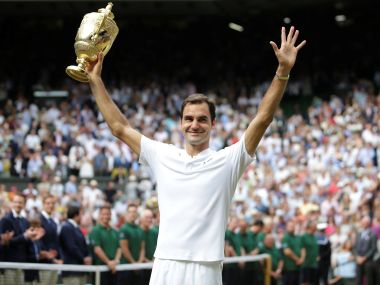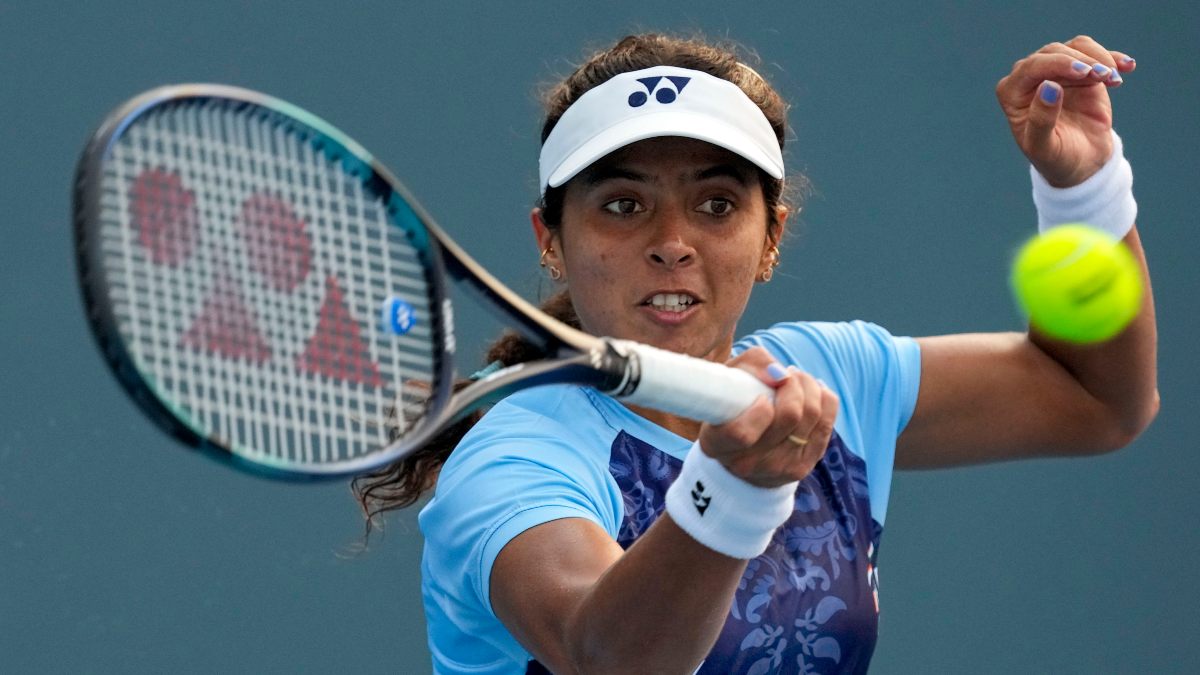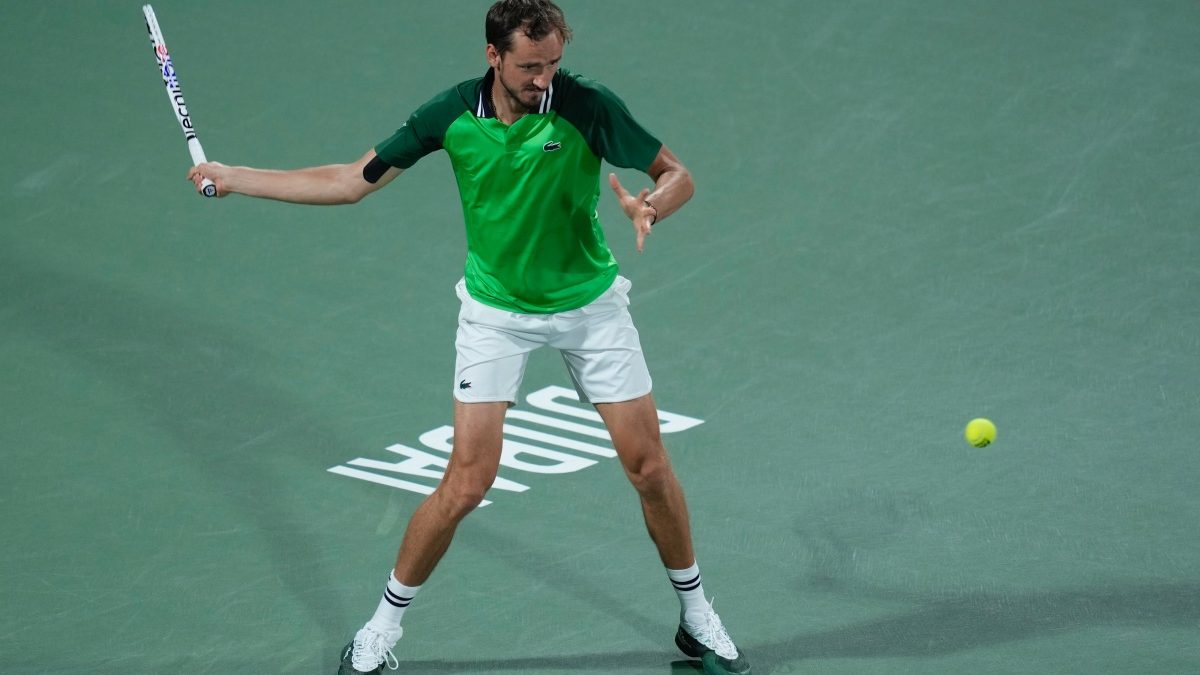“Grass is for cows,” Marat Safin famously said once, and even the most serious one among us had to chuckle. At the start of his career, Safin looked decidedly uncomfortable with grasscourt tennis, and many believed he would never taste success at Wimbledon since he had such a negative attitude towards it.
Of course, like all Safin things, that was to prove a flippant (albeit entertaining) remark that didn’t mean much. The Russian worked on his grasscourt game, and eventually reached the Wimbledon semi-finals in 2008. You can bet he wouldn’t have done that if he really thought grass was just for cows.
As unserious as Safin may have been while uttering that now-legendary line though, there was some truth to it. Grass is for a domesticated animal, but a much smaller one: a GOAT. Wimbledon has been the preserve of the very best in tennis throughout the Open Era (and even before that), with the list of winners at SW19 reading like a who’s-who of the pantheon of greats.
Since 2003, only a ‘Big 4’ member — Roger Federer, Rafael Nadal, Novak Djokovic or Andy Murray — has won the men’s singles title. Before them, the Grand Slam had been dominated by all-time greats like Pete Sampras, John McEnroe, Jimmy Connors, Bjorn Borg and Rod Laver. In fact, there have been only four male champions in the Open Era who haven’t won any other Slam; statistically speaking, a win at Wimbledon is almost a guarantee that you’ll win multiple Majors.
Surely the dominance of the top players at Wimbledon is restricted to the men, right? Wrong. Wimbledon is remarkably immune to the chaos that is so common at most WTA tournaments, and it has been that way for a while. In the Open Era, there have been only three female Wimbledon champions that aren’t multiple Slam champions.
At Wimbledon, a stars-are-aligning kind of title for an unlikely underdog is just not in the stars.
But why exactly is Wimbledon so difficult to win for players outside the big dog club? There are several reasons, not least of which is that the surface doesn’t do any favors to a newcomer trying to break through.
Grass has become alien to most youngsters, who grow up playing long hours on clay and hard but almost nothing on grass. That naturally has a bearing on how they react and adapt to grass; when you don’t have much experience of dealing with a particular set of conditions, you’re bound to stumble.
Unfortunately for lovers of throwback tennis, the status quo of grass as only a secondary surface of choice is unlikely to change any time soon. The high cost of maintaining grasscourts, together with the unpredictable nature of grass in general (outside Wimbledon, very few grasscourts have anything close to a level, non-patchy playing area), mean that coaching academies all over the world will continue giving preference to clay and hard courts over grass.
Tennis may have been a ’lawn’ sport at the time of its origin, but it has gradually and irrevocably shifted to non-lawn environs. By 1977, the International Lawn Tennis Federation dropped the word ’lawn’ from its name, recognizing the evolution of the sport. There is clearly no going back from that.
Grass is also the surface where there’s the least room for error. Clay is known as the most unforgiving surface in tennis, but that’s only with respect to physicality; from a mental standpoint, grass is even more unforgiving. One missed forehand here or one untimely double fault there, and you have given up the break. And one break is usually enough to determine the result of a set — sometimes even a match.
Clay and hard courts give you time to make amends for your slip-ups, but grass doesn’t. It penalizes you for the smallest of mistakes, even if they come at the most innocuous of moments. That’s why the players who don’t make too many mistakes in the first place — in other words, the greats — have an inherent advantage. A Federer or a Nadal is unlikely to miss a game-changing volley against a lower-ranked player; that refusal to miss is usually enough to swing the result their way.
Aside from the superior skills of the top players that make a telling difference on grass, there’s another reason why they actually bring all of those skills to the fore at Wimbledon. No matter how much the preeminence of grass as a surface may have receded, the preeminence of Wimbledon hasn’t receded one bit.
At the start of every season, Federer always says Wimbledon is his biggest goal of the year. Nadal has repeatedly professed that winning Wimbledon was his most cherished dream while growing up. Murray has always wanted to win Wimbledon for his country, and Djokovic has always looked at Wimbledon as the key to his legacy. Sampras, Borg, McEnroe — for the greats of the game (even the unfortunate Ivan Lendl, who never completed the job), winning Wimbledon was always the top priority.
The story is not very different on the women’s side. The two most dominant champions of the last two decades — the Williams sisters — look at Wimbledon as their private property. They always center their schedule around the grasscourt Slam and turn up fully dialed-in for it, no matter how injured or out of form they may be the rest of the year. Before them, the likes of Steffi Graf and Martina Navratilova created grasscourt empires at SW19 so unconquerable that they threatened to reduce every other player on tour into an afterthought.
There’s just a whole lot of added incentive to do well at the Big W. Whether that incentive is justified or not — should Wimbledon really be considered the most prestigious Slam? — is a debate for another day. But there’s no denying that the best players over the last few decades have made it a point to bring their best to Wimbledon. And beating a fully motivated all-time great at the top of their game is just a very difficult thing to do for any player aspiring to win his or her maiden Wimbledon trophy.
In the 2009 men’s final, Andy Roddick fought Federer tooth and nail for well over four hours. Many believed Roddick was the better player for a majority of the match, which was borne out by the fact that he was broken fewer times than the Swiss. Ultimately though, Federer still ended up winning — not because he was the better player on the day, but because he somehow wanted it more than even the most violently motivated Roddick.
That’s just what cows and GOATs do on grass; they get down to business like their life depends on it. What hope do the others really have?


)




)
)
)
)
)
)
)
)